Mr. Ngo Van Bien in Toan Thang commune, Hiep Hoa district is considered as the "Goat King" in Bac Giang province when he is raising a herd of 2,000 goats. The goat breed that Mr. Bien raises is from South Africa - Boer goat breed, selling 60 tons of live goats to the market every month, earning a profit of over 2 billion VND/year.
Video : Mr. Ngo Van Bien, a farmer raising South African goats (Boer breed) in Toan Thang commune, Hiep Hoa district (Bac Giang), takes care of a herd of thousands of goats.
In early February, Mr. Bien, 52 years old, was busy with his wife taking care of the goats, stretching tarps to cover them, and mixing food from banana trees to increase the resistance of the herd of 2,000 goats during the cold days.
"Last December of the lunar calendar, I sold 1,000 meat goats, weighing over 50 tons, to the market to serve people during Tet, at a price of 140,000 VND per kilogram. After Tet, I continued to sell goats to restaurants across the North, more than 500 kg of live goats per day," Mr. Bien said, explaining that after the Tet holiday, when restaurants reopened, market demand continued to increase.
The tall, agile farmer said that the model of raising goats in cages is being applied in many places with low investment costs but high economic efficiency.
Currently, Mr. Bien is raising South African goats, also known as Boer goats - a breed of goat originating in South Africa with the outstanding characteristics of growing very fast, being easy to raise, having a voracious appetite and producing a lot of meat.
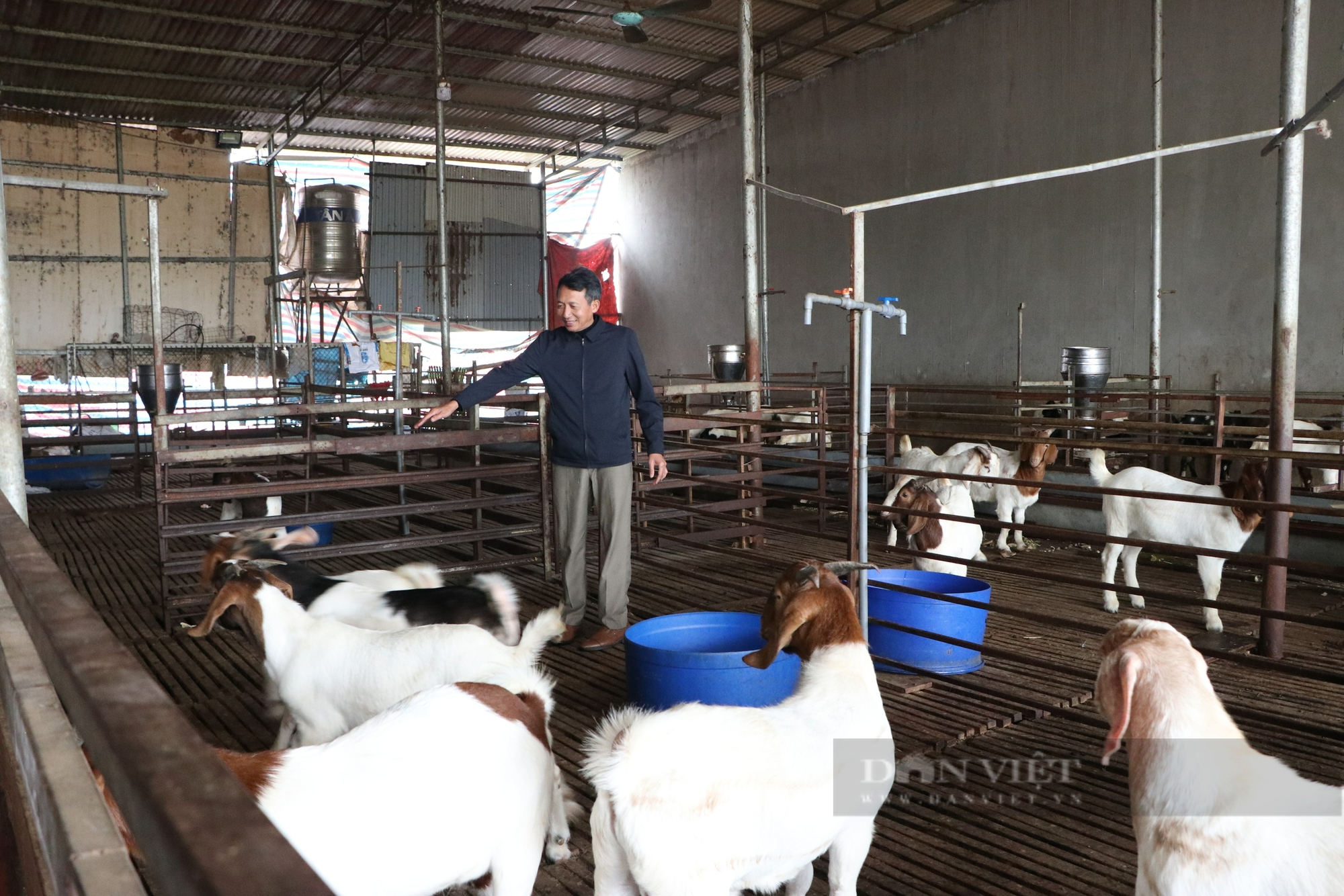
Mr. Ngo Van Bien in Toan Thang commune, Hiep Hoa district is considered the "Goat King" in Bac Giang province when he raises a herd of 2,000 goats (Boer breed) earning over 2 billion VND per year. Photo: Binh Minh
Talking to Dan Viet, Mr. Bien could not forget the difficult years and the opportunity to start his goat farming career. In 2000, in Hiep Hoa and some districts of Bac Giang province, there was a movement of transporting piglets by motorbike to the mountains to sell.
At that time, he had a Mink motorbike, which he used almost continuously, several trips a week to Bac Kan and Cao Bang. At first, customers paid immediately, then he had acquaintances and sold on credit, letting them prepare money for the next shipment to collect the debt.
In Bac Kan, there was a man who bought a pig to raise, but did not have money to pay, and then gave him a goat as a debt. At that time, there was no goat restaurant in Bac Giang, goat was very rare and expensive compared to other meats, few people dared to eat goat meat, so it was very difficult to find customers, and they did not know how to sell it.
Then someone introduced him to a restaurant in Thai Nguyen city that bought goats, so he took them there to sell and from then on became a specialist in supplying goats to this restaurant.
From being forced to take goats to pay off debt, he realized that buying goat meat from the mountains to sell was profitable, so he regularly bought goats from the mountains to sell. In the following years, goat meat became more popular, so he went to other restaurants in Thai Nguyen, Hanoi, Bac Ninh, Bac Giang and many provinces in the North to ask to supply them with goat meat. With a stable market, Mr. Bien completely gave up the pig trading business to switch to selling goats.
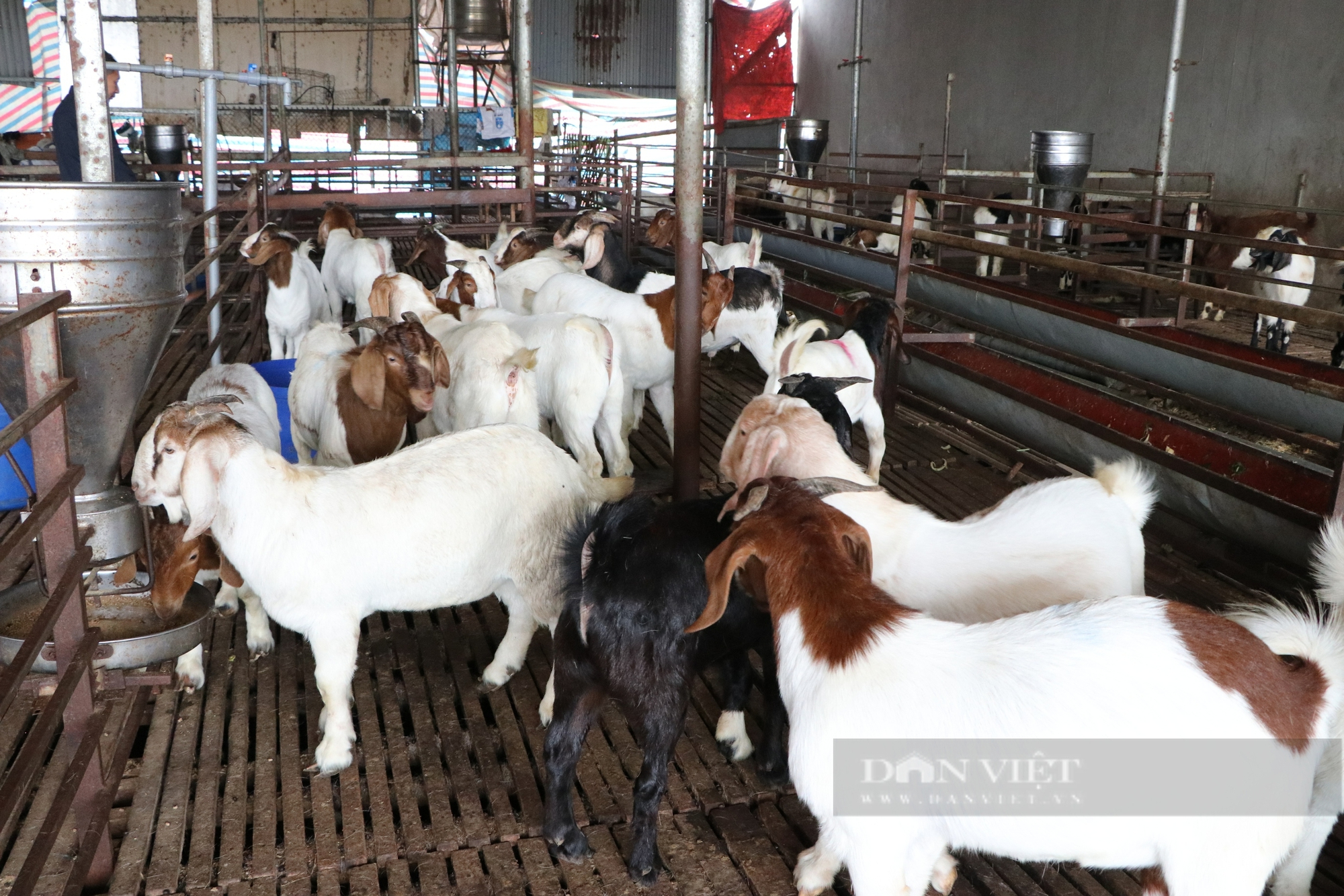
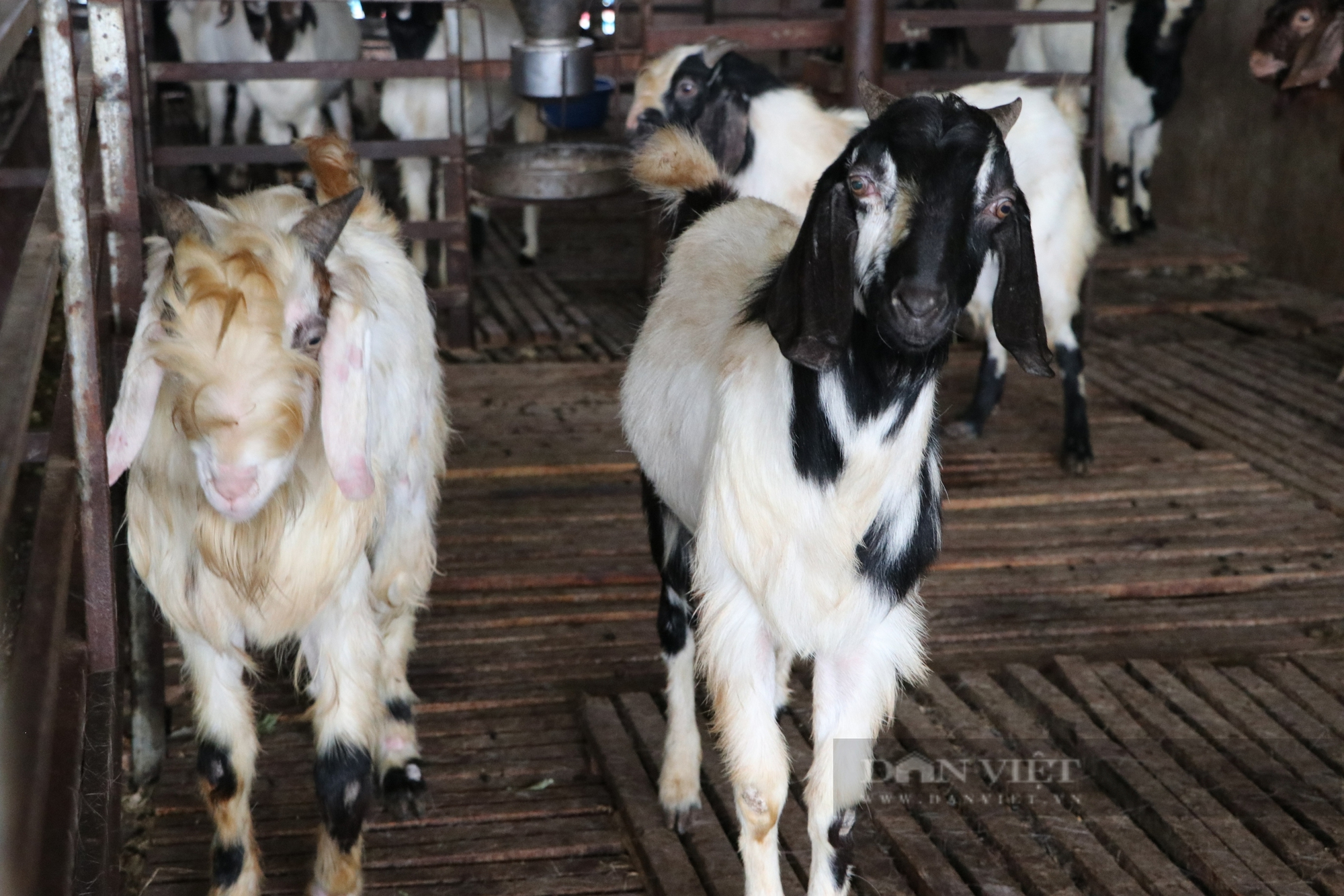
Currently, Mr. Bien is raising Boer goats - a breed of goat originating in South Africa with the outstanding characteristics of growing very fast, being easy to raise, having a good appetite and producing a lot of meat. Photo: Binh Minh
"At first, I imported goods from Bac Kan, then went to Tuyen Quang, Ha Giang, Cao Bang, Lang Son and all the northern mountainous provinces, wherever there were goats, I bought them.
The consumer market has also expanded throughout the North, then nationwide, and wherever there is a need for goat meat, I can meet it. If there is a lot, I can transport it by truck, if there is a little, I can send it by passenger bus," Mr. Bien shared.
After a few years, Mr. Bien had a stable supply from some mountainous provinces in the northern border, importing more than 2,000 goats a month to supply restaurants from North to South. The means of transport were 2-3-axle trucks with large tonnage, with a trip carrying about 500-600 goats.
To proactively supply, in 2002, Mr. Bien started raising goats, both for breeding and fattening. Accordingly, he applied the method of confinement, feeding not only leaves and grass, but also with animal feed. He is known as the first person in Bac Giang to raise commercial goats in this form.
After 25 years of raising and trading goats, Mr. Bien now owns two farms of 2,000 square meters and 1.6 hectares of grass and bananas for goat feed.
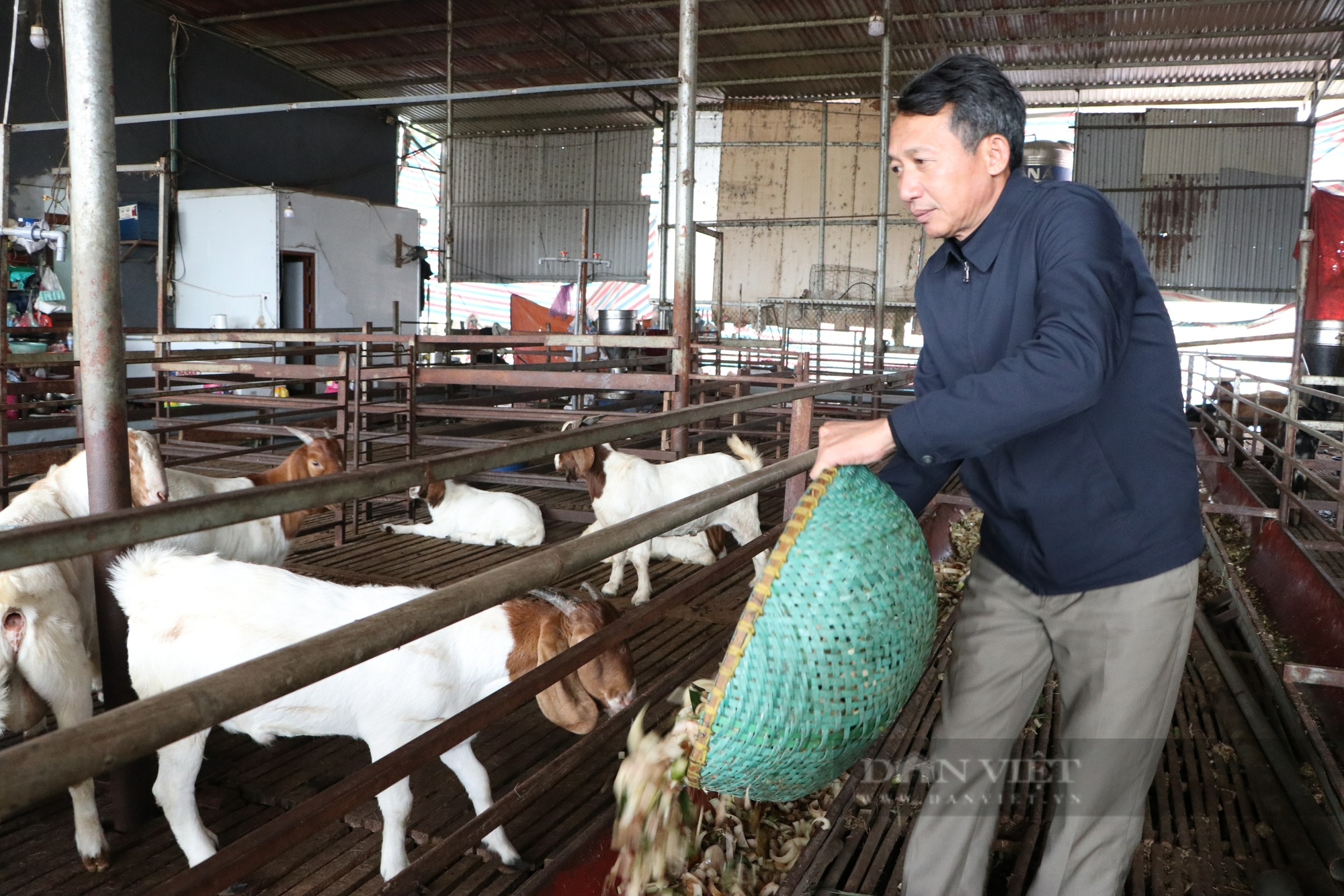
Every month, Mr. Bien's farm sells 60 tons of live goats, a Boer breed originating from South Africa, supplying them to all provinces in the North and South. Photo: Binh Minh
According to Mr. Bien, goats give birth very quickly, giving birth to 3 litters every 2 years. If you keep them all, you don't lose money on the breeding stock, but it takes 8-10 months to sell them. As for raising goats, you buy young or skinny goats from 20-22kg to fatten them up, they will reach 40kg in about 4 months, quickly sell them and bring in high profits.
During the process of raising and trading goats, Mr. Bien also had to go through many difficulties, especially in the period 2020-2022 when the Covid-19 epidemic appeared, causing him to be "distressed", losing several billion VND. "At that time, almost all restaurants were closed, market demand decreased seriously, goats could not be sold, I lost billions of VND," he said.
To develop the goat farming model in the district, in 2022, the Hiep Hoa District Farmers' Association promoted, guided the establishment and launched the Cau Huong Goat Farming Cooperative with 8 members, with Mr. Bien as director.
Ms. Nguyen Thi Manh Hien, Chairwoman of the Hiep Hoa District Farmers' Association, assessed that the goat raising model of Cau Huong Goat Raising Cooperative after more than 2 years of operation has brought high economic efficiency to its members. The model of the Cooperative has also attracted many farmers to visit and learn from its experience.
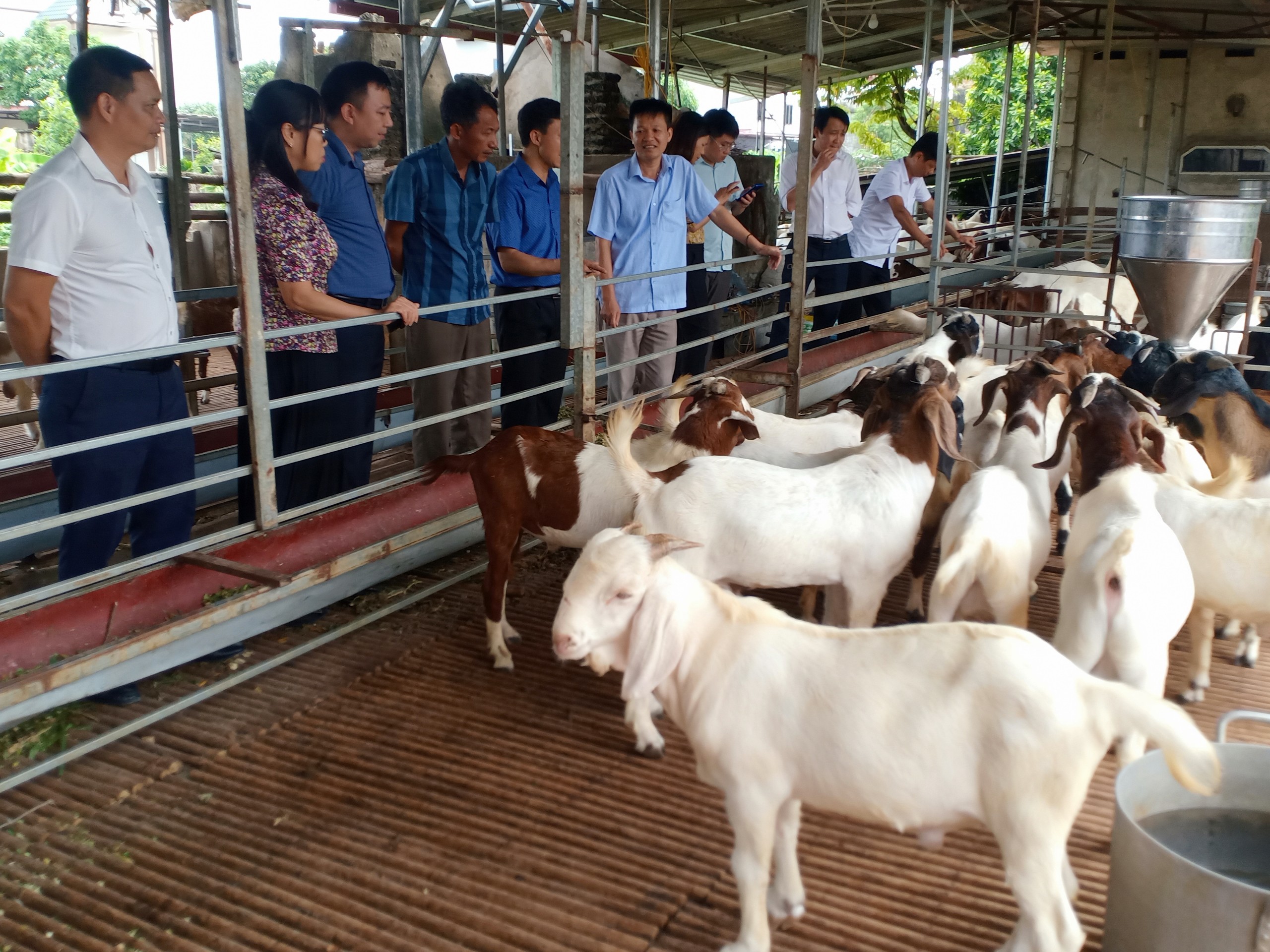
Delegates visit the goat farming model after launching the Cau Huong Goat Farming Cooperative in 2022 in Hiep Hoa district, Bac Giang. Photo: Van Anh
According to Ms. Hien, the success of the goat raising model of Cau Huong Goat Raising Cooperative will open a new direction for farmers in Hiep Hoa district.
Source: https://danviet.vn/ty-phu-bac-giang-la-mot-ong-nong-dan-nuoi-de-nam-phi-dac-san-so-luong-lon-nhat-tinh-lai-2-ty-nam-20250207105217889.htm








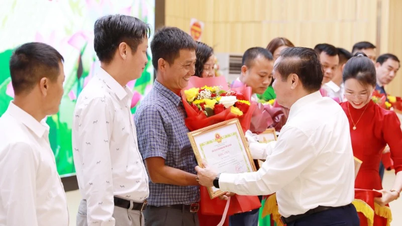
































































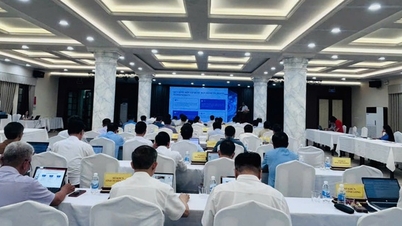





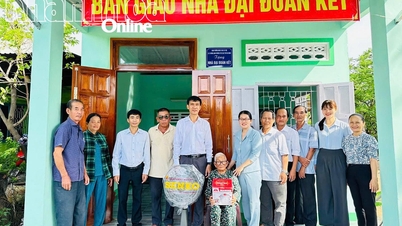






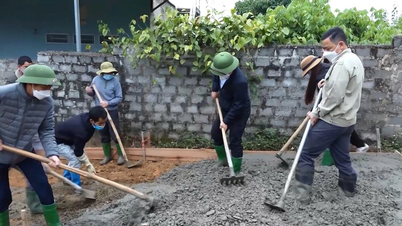















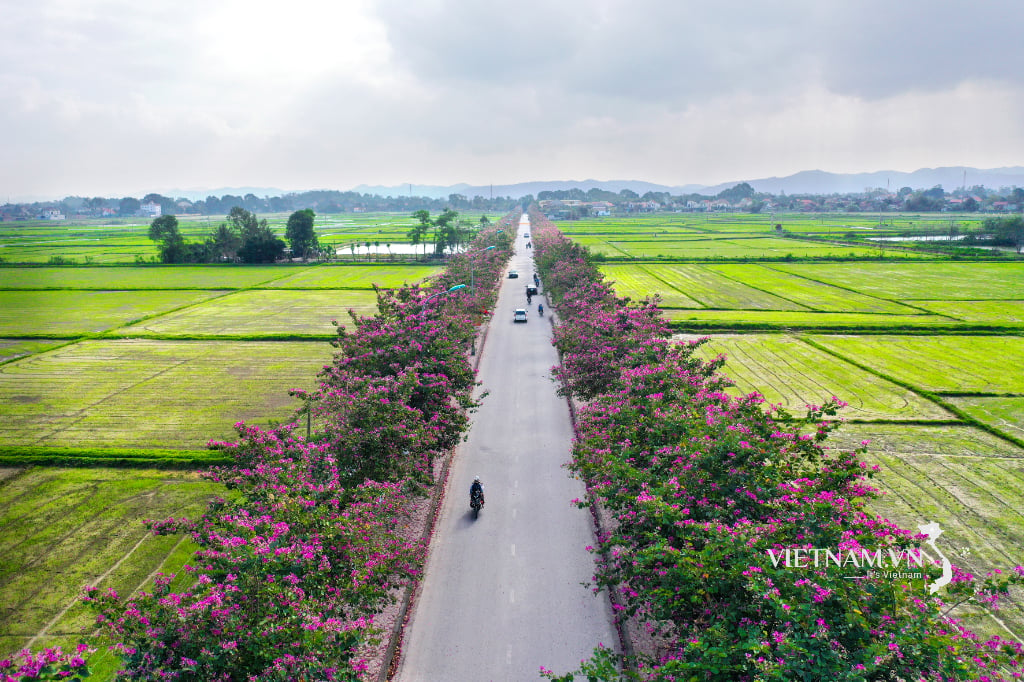

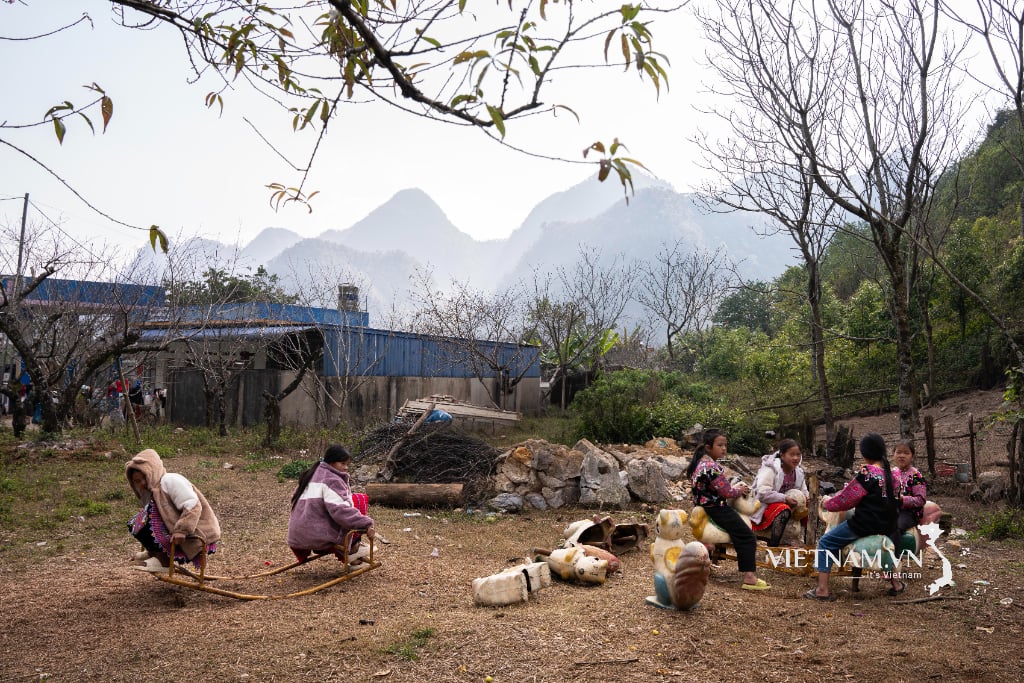
Comment (0)